
Explore the Wonders of Namunyak Wildlife Conservation Trust
Discover the breathtaking wildlife and cultural richness of Namunyak Wildlife Conservation Trust, a unique conservation area in Kenya.
Namunyak Wildlife Conservation Trust is a breathtaking destination that blends conservation with adventure, allowing tourists to immerse themselves in the stunning natural beauty and diverse wildlife of Kenya. This unique wildlife sanctuary offers a variety of experiences, from guided safaris to cultural interactions with local communities, making it a must-visit for eco-conscious travelers.
A brief summary to Namunyak Wildlife Conservation Trust
- 79CM+33Q, Archer's Post - Baragoi Road, KE
- +441747831005
- Monday 8 am-6 pm
- Tuesday 8 am-6 pm
- Wednesday 8 am-6 pm
- Thursday 8 am-6 pm
- Friday 8 am-6 pm
- Saturday 8 am-6 pm
- Sunday 8 am-6 pm
Local tips
- Visit during the early morning or late afternoon for the best wildlife viewing opportunities.
- Bring binoculars for bird watching; the sanctuary is home to numerous bird species.
- Consider hiring a local guide to enhance your experience and understanding of the area.
- Wear comfortable shoes for walking safaris and stay hydrated throughout your visit.
- Respect the wildlife and maintain a safe distance when observing animals in their natural habitat.
Getting There
-
Car
If you are driving from Samburu National Reserve, head towards Archer's Post. From the main entrance of the reserve, take the road leading to Archer's Post. Continue on the Archer's Post - Baragoi Road for approximately 30 kilometers. Look for the coordinates 79CM+33Q, which is where Namunyak Wildlife Conservation Trust is located. The drive should take around 45 minutes to an hour, depending on road conditions.
-
Public Transportation
To reach Namunyak Wildlife Conservation Trust by public transport, you can take a matatu (shared taxi) from Samburu National Reserve to Archer's Post. The matatus usually depart from designated points in the reserve. Once you reach Archer's Post, you will need to arrange for a local taxi or boda boda (motorcycle taxi) to take you the remaining distance along the Archer's Post - Baragoi Road. Make sure to confirm the fare before starting your journey; the total cost may vary but expect to pay around 500-1000 KES for the taxi ride.
-
Taxi
If you prefer a more comfortable option, you can hire a taxi directly from your accommodation in Samburu National Reserve to Namunyak Wildlife Conservation Trust. Confirm the fare with the driver before setting off. The journey will take approximately 45 minutes to an hour depending on traffic and road conditions. Expect to pay around 3000-5000 KES for the trip, but prices may vary based on negotiation.
Discover more about Namunyak Wildlife Conservation Trust
Iconic landmarks you can’t miss
Samburu Trails | Samburu National Reserve
48.0 km
Explore the breathtaking landscapes and unique wildlife of Samburu National Reserve, a true Kenyan safari adventure.
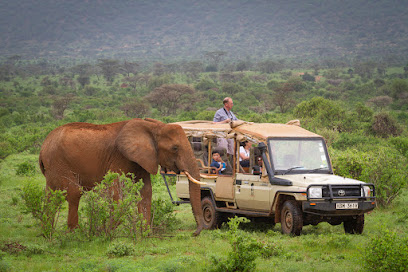
Sabache Camp
51.9 km
Discover the tranquility of Sabache Camp, where nature and adventure intertwine for an unforgettable camping experience in the heart of Kenya.

Saruni Samburu
64.8 km
Discover the perfect blend of luxury and wilderness at Saruni Samburu, your gateway to unforgettable wildlife adventures in Kenya's Kalama Community Conservancy.

Loroghi Plateau
71.0 km
Discover the enchanting landscapes and rich cultures of Loroghi Plateau, a serene Kenyan retreat for nature lovers and adventure seekers.

Sasaab
71.1 km
Experience the luxury of Sasaab, an eco-friendly hotel nestled in Samburu National Reserve, where nature and comfort blend seamlessly.

Samburu Sopa Lodge
75.1 km
Discover the beauty of Samburu National Park at Samburu Sopa Lodge, a luxurious retreat amidst breathtaking wildlife and serene landscapes.

Samburu Elephant Lodge
76.6 km
Experience the magic of Samburu National Reserve at Samburu Elephant Lodge, where luxury meets the wild in a stunning Kenyan safari escape.

Elephant Watch Camp
76.7 km
Uncover the wonders of Samburu at Elephant Watch Camp, a luxurious lodge along the Ewaso Nyiro River, perfect for wildlife enthusiasts and eco-conscious travelers.

Camels Gate Lodge
77.1 km
Discover the comfort and charm of Camels Gate Lodge in Archers Post, a perfect retreat for nature lovers and adventure seekers in Kenya.

Umoja Camp Site
77.4 km
Experience the wild beauty of Kenya at Umoja Camp Site, your gateway to Samburu National Reserve and unforgettable adventures.

Samburu Intrepids Tented Camps (Heritage Hotels)
78.0 km
Discover the wild heart of Kenya at Samburu Intrepids Tented Camps, where luxury meets nature in a stunning safari experience.

Ashnil Samburu Camp
79.4 km
Discover the wild beauty of Samburu at Ashnil Samburu Camp, where luxury meets nature in an unforgettable safari experience.

Elephant Bedroom Camp
79.6 km
Discover the luxury of Elephant Bedroom Camp in Samburu National Reserve, where nature and comfort beautifully converge for an unforgettable safari experience.

Samburu Simba Lodge
79.8 km
Experience the magic of Samburu Simba Lodge, where luxury meets the wild, offering breathtaking views and unforgettable wildlife adventures in Kenya.

Samburu Riverside Camp
79.9 km
Experience the beauty of Kenya at Samburu Riverside Camp, an eco-friendly lodge by the Ewaso Nyiro River, surrounded by vibrant wildlife and stunning landscapes.

Unmissable attractions to see
Reteti Elephant Sanctuary
19.3 km
Discover the beauty of Reteti Elephant Sanctuary, where orphaned elephants find hope and healing in the heart of Kenya's Namunyak Wildlife Conservancy.
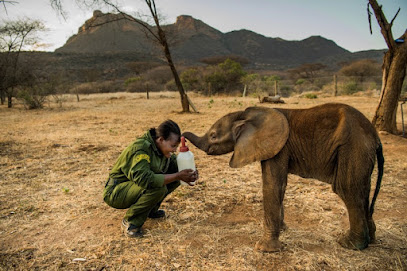
Sarara Camp
29.1 km
Discover luxury and nature at Sarara Camp, your gateway to an immersive wilderness experience in Samburu, Kenya.

Namunyak Wildlife Conservancy
36.2 km
Explore Namunyak Wildlife Conservancy: A haven for wildlife and nature lovers, showcasing Kenya's stunning biodiversity and conservation efforts.
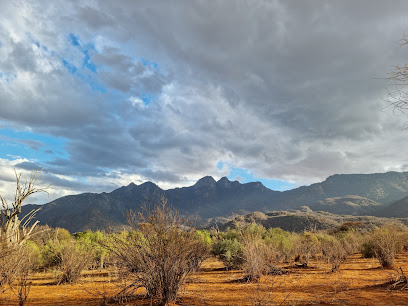
Molodong
46.0 km
Explore the stunning landscapes and rich culture of Molodong, a hidden gem in Kauro, Kenya, perfect for nature lovers and cultural enthusiasts.

Oldonyo Sambach
46.7 km
Experience the breathtaking beauty and rich culture of Oldonyo Sambach, a must-visit tourist attraction in Koiting, Kenya.

Mt. Ololokwe
49.8 km
Explore the stunning landscapes and rich biodiversity at Mt. Ololokwe, a top hiking destination in Kenya that promises breathtaking views and cultural encounters.

Cat and Mouse rocks
50.7 km
Explore the breathtaking Cat and Mouse Rocks in Laresoro, Kenya, a unique natural attraction perfect for adventurers and nature lovers.

Ngurunit Natural Rock Pools and Water Slides
51.7 km
Discover the breathtaking Ngurunit Natural Rock Pools and Water Slides, where adventure meets nature in Kenya's stunning landscape.
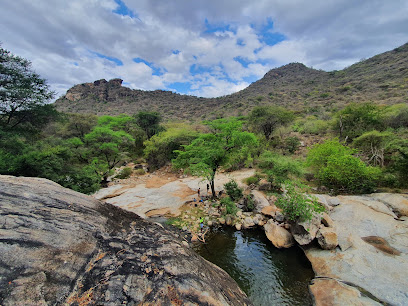
Milgis Lugga,
57.6 km
Explore Milgis Lugga, Kenya's hidden gem, where stunning landscapes and rich cultural experiences await every traveler in the heart of nature.

Maralal national conservancy
59.4 km
Explore the enchanting Maralal National Conservancy, where wildlife meets rich culture in a breathtaking Kenyan landscape.

Kalama Community Conservancy
62.0 km
Explore the breathtaking landscapes and rich biodiversity of Kalama Community Conservancy in Kenya, a perfect destination for nature lovers and eco-tourists.
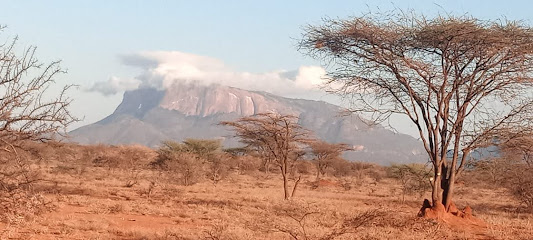
Kalama Resource Centre
62.3 km
Explore the Kalama Resource Centre in Archers Post, where culture meets conservation in the heart of Kenya's breathtaking wilderness.

Samburu National Reserve
74.4 km
Explore the breathtaking Samburu National Reserve, a wildlife haven in Kenya showcasing unique species and stunning landscapes.
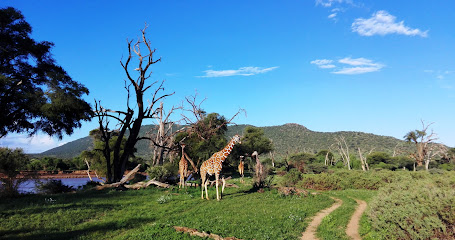
Samburu National Park
75.0 km
Explore the captivating wildlife and rich cultural heritage of Samburu National Park, a must-visit destination for nature lovers and adventure seekers in Kenya.
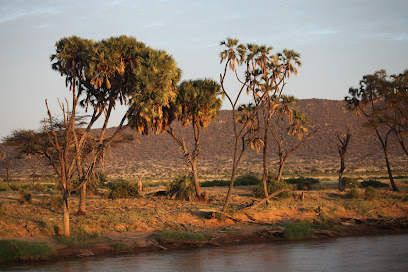
Samburu
75.8 km
Experience the wild allure of Samburu, Kenya – a destination rich in wildlife and cultural heritage, perfect for unforgettable adventures.

Essential places to dine
Samburu Northern Springs, Archer's Post, Samburu, Kenya
76.6 km
Experience authentic Kenyan flavors at Samburu Northern Springs—your culinary haven in the wild heart of Samburu.

Archers Klub Haus
77.1 km
Discover vibrant nightlife at Archers Klub Haus - your go-to restaurant and sports bar in Archers Post offering delicious cuisine and entertainment.
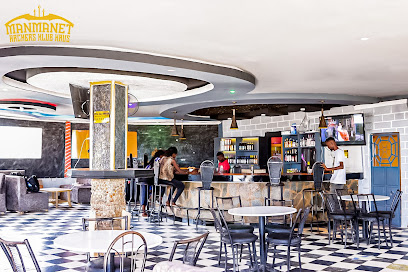
Sinteti Hotel
77.2 km
Discover authentic Kenyan cuisine at Sinteti Hotel in Archers Post—your gateway to Samburu and Shaba National Reserves.

Seasons Hotel Maralal
78.1 km
Discover Seasons Hotel Maralal - where local flavors meet comfort in Kenya's picturesque Samburu region.

Coast Dishes Hotel
78.3 km
Discover authentic Swahili cuisine at Coast Dishes Hotel in Maralal – where every meal tells a story.
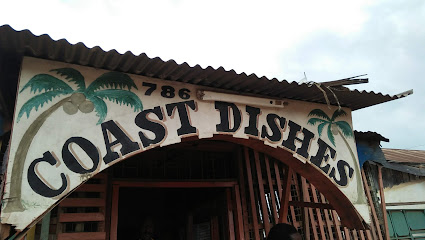
Samburu Restaurant
78.4 km
Discover the rich flavors of Kenya at Samburu Restaurant in Maralal - where local ingredients meet international cuisine.
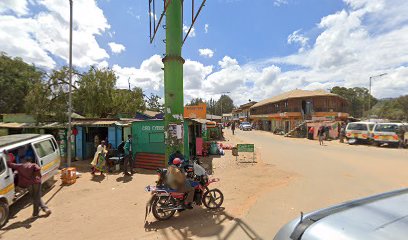
Samburu Park restaurant
78.6 km
Experience authentic Kenyan cuisine in Maralal at Samburu Park Restaurant – where local flavors meet warm hospitality.
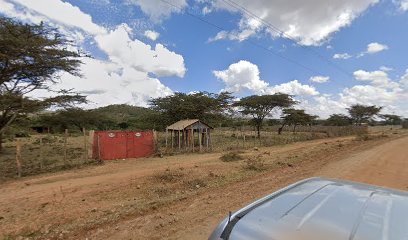
Samburu Guest House
78.8 km
Experience comfort and culture at Samburu Guest House in Maralal - your gateway to Kenya's stunning landscapes.
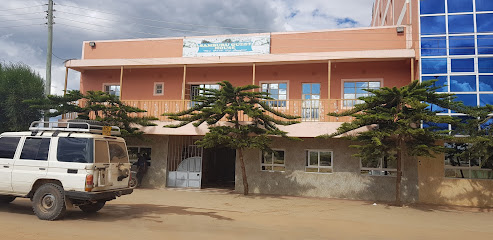
Bonsella Gardens Baragoi
87.2 km
Experience serenity at Bonsella Gardens Baragoi - where comfort meets culinary delight amidst stunning natural beauty.
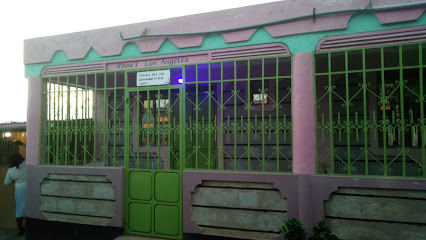
Markets, malls and hidden boutiques
Samburu enterprises
33.1 km
Discover authentic Samburu clothing and accessories at Samburu Enterprises in Wamba, a must-visit for cultural enthusiasts and savvy shoppers alike.

Sokomart Mbiri
66.2 km
Discover authentic Chinese ingredients and cultural treasures at Sokomart Mbiri, the leading Chinese supermarket in Mutithi Kirinyaga.

Kiltamany Dispensary
70.4 km
Explore Kiltamany Dispensary, a vital healthcare center providing essential medical services for locals and travelers in beautiful Kenya.

Richrose shop building
71.4 km
Experience local shopping at the Richrose Shop Building, a charming general store on Dudi Urewe Road in Dudi, Kenya.

Huruma Gen Shop & Grocery
76.5 km
Explore the authentic tastes of Kenya at Huruma Gen Shop & Grocery, your go-to destination for local produce and culinary delights.

Doreen general shop
76.5 km
Discover the charm of Doreen General Shop in Archers Post, where local culture meets convenience and unique souvenirs await every traveler.

Imani Hardware
76.5 km
Imani Hardware: Your Go-To Hardware Store in Archers Post, Kenya for Every Traveler's Needs

Vision Shop
76.6 km
Discover stylish eyewear and expert eye care at Vision Shop in Archers Post, your trusted optician for quality optical services.
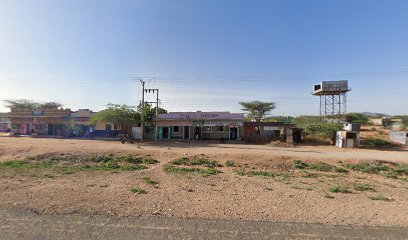
Generations shop -Achers post
76.6 km
Experience local culture and flavors at Generations Shop in Archers Post, a vibrant grocery store showcasing fresh produce and authentic Kenyan delicacies.

MIAMI BAKERIES
76.6 km
Explore the delightful flavors of Miami Bakeries in Archers Post, where fresh pastries and artisanal bread create a memorable culinary experience.
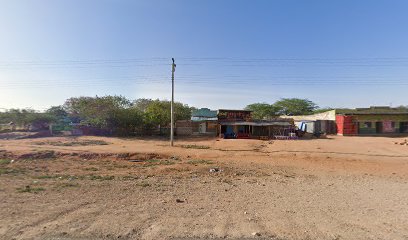
Naaingura Business Center
76.7 km
Experience the vibrant culture and modern shopping at Naaingura Business Center in Archers Post, a must-visit destination for every traveler.

Wao
76.7 km
Explore Wao Shopping Mall in Archers Post - a vibrant hub for shopping, dining, and local culture, perfect for every tourist's itinerary.

Wonderprice Hardware
76.8 km
Explore Wonderprice Hardware in Archers Post for all your DIY needs, offering a wide selection of tools and exceptional customer service.

Archers Mid-Town Hardware & Electrical Store
76.8 km
Explore Archers Post through its local hardware store, a vital hub for DIY enthusiasts and community engagement.

Naropili Ushanga Clothes / Design
76.8 km
Uncover the essence of local fashion at Naropili Ushanga Clothes, where tradition meets modern design in Archers Post.

Essential bars & hidden hideouts
Nabosu Complex Bar
57.4 km
Experience the vibrant atmosphere and refreshing drinks at Nabosu Complex Bar, a must-visit stop in northern Kenya.
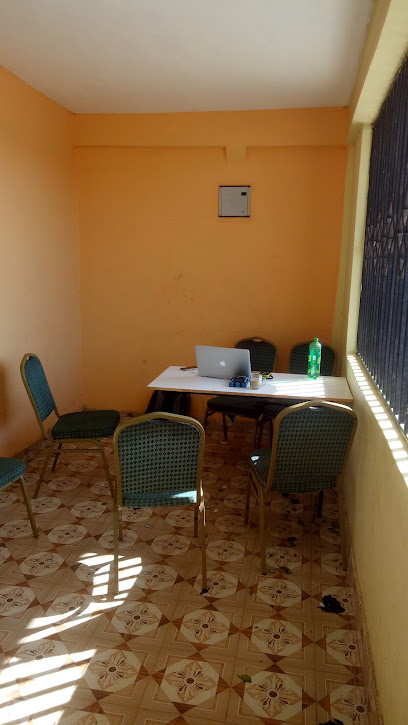
County Inn Hotel
76.2 km
Discover the authentic flavors of Kenya at County Inn Hotel, a premier dining destination in the heart of Samburu.

THE MOONRAKERS PUB
76.5 km
Discover The Moonrakers Pub in Archers Post, where local culture meets refreshing drinks in a vibrant atmosphere for every traveler.
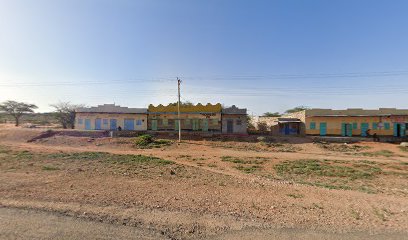
Maxland Bar
76.6 km
Discover the vibrant atmosphere of Maxland Bar in Archers Post, where refreshing drinks and local culture come together for an unforgettable experience.

Sundowner Bar and Lodgings
77.2 km
Discover the perfect blend of relaxation and local culture at Sundowner Bar and Lodgings in Archers Post, Kenya.

Oasis Bar And Lodgings
77.2 km
Discover the Oasis Bar and Lodgings in Archers Post - a perfect blend of relaxation, local culture, and vibrant nightlife.

Bones 3D
78.2 km
Discover the vibrant nightlife at Bones 3D, a local bar in Maralal offering a mix of drinks, music, and a lively atmosphere.
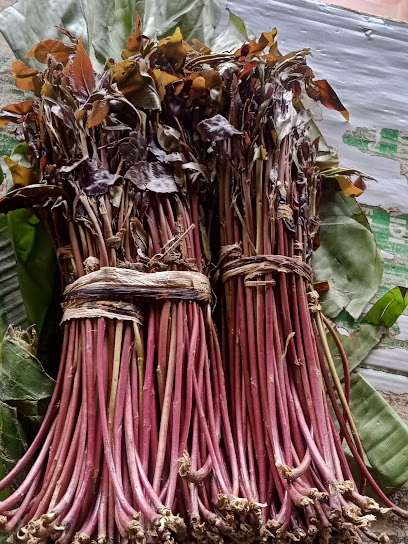
Sungura Boutique Hotels
78.6 km
Discover comfort and local charm at Sungura Boutique Hotels in Maralal, the perfect blend of relaxation and adventure in Kenya’s stunning landscapes.
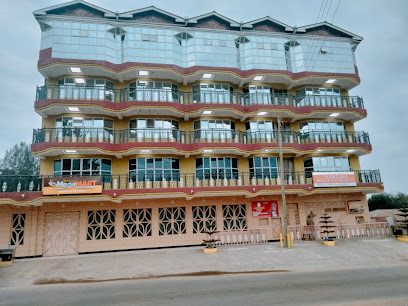
View point bad
78.6 km
Discover stunning vistas and a relaxed atmosphere at View Point Bad, the perfect bar for enjoying Kenya's natural beauty while sipping your favorite drink.

Soroi Larsens Camp
80.5 km
Discover family-friendly comfort and the beauty of nature at Soroi Larsens Camp, your ultimate lodge getaway in Umoja, Kenya.
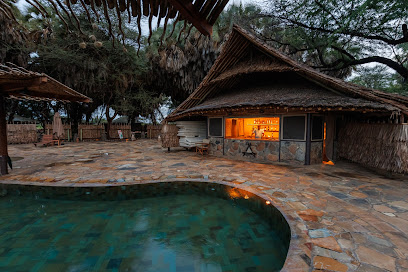
Muzzei View Bar And Restaurant
86.6 km
Discover the flavors of Baragoi at Muzzei View Bar And Restaurant, where local cuisine meets stunning views in a welcoming atmosphere.
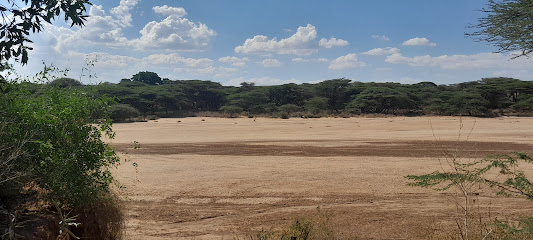
Promise Bar
87.3 km
Discover the lively ambiance and local charm at Promise Bar in Baragoi – a perfect spot for drinks and socializing with locals.

PROMISE GUESTHOUSE BAR AND RESTAURANT
87.6 km
Experience the warmth of local hospitality at Promise Guesthouse Bar and Restaurant in Baragoi, where comfort meets delicious cuisine.

Choices Bar
88.2 km
Discover the vibrant atmosphere of Choices Bar in Baragoi, where local culture comes alive with every drink and delightful conversation.




